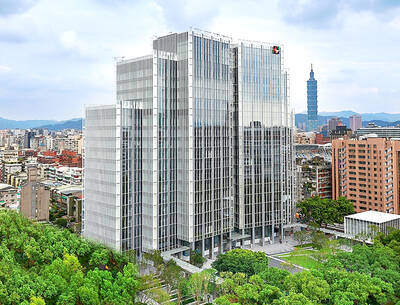Martin Currie Investment Management Ltd, Scotland's largest hedge-fund manager, yesterday denied a report it is seeking a stake in National Petroleum Co (全國加油站).
The Commercial Times reported on Monday that Martin Currie may buy 25 percent in the gasoline-station operator to gain from the Taipei-based company's links with the Formosa Plastics Group (台塑).
"We do not own this stock," Ross Leckie, a Martin Currie spokesman, said in an e-mail yesterday. "Nor do we have any interest in investing in it."
National Petroleum, operator of 101 filling stations around Taiwan, agreed last month to form a strategic alliance with Formosa Oil (Asia Pacific) Corp, the newspaper said, without citing anyone or giving details.
The two companies would combine their gasoline retail stations and operate them under one brand name, the newspaper said.
Formosa Oil, operator of 164 gasoline stations, is a unit of Formosa Plastics Group.
Taiwan had a total 2,615 gasoline stations as of last month, the Bureau of Energy bureau said on its Web site.
Martin Currie manages US$26.7 billion in equities, according to its Web site.
The Commercial Times report ``is purely market information,'' National Petroleum said in a statement to the Taiwan Stock Exchange on Monday.

UNCERTAINTY: Investors remain worried that trade negotiations with Washington could go poorly, given Trump’s inconsistency on tariffs in his second term, experts said The consumer confidence index this month fell for a ninth consecutive month to its lowest level in 13 months, as global trade uncertainties and tariff risks cloud Taiwan’s economic outlook, a survey released yesterday by National Central University found. The biggest decline came from the timing for stock investments, which plunged 11.82 points to 26.82, underscoring bleak investor confidence, it said. “Although the TAIEX reclaimed the 21,000-point mark after the US and China agreed to bury the hatchet for 90 days, investors remain worried that the situation would turn sour later,” said Dachrahn Wu (吳大任), director of the university’s Research Center for

Alchip Technologies Ltd (世芯), an application-specific integrated circuit (ASIC) designer specializing in artificial-intelligence (AI) chips, yesterday said that small-volume production of 3-nanometer (nm) chips for a key customer is on track to start by the end of this year, dismissing speculation about delays in producing advanced chips. As Alchip is transitioning from 7-nanometer and 5-nanometer process technology to 3 nanometers, investors and shareholders have been closely monitoring whether the company is navigating through such transition smoothly. “We are proceeding well in [building] this generation [of chips]. It appears to me that no revision will be required. We have achieved success in designing

PROJECTION: KGI Financial said that based on its foreign exchange exposure, a NT$0.1 increase in the New Taiwan dollar would negatively impact it by about NT$1.7 billion KGI Financial Holding Co (凱基金控) yesterday said its life insurance arm has increased hedging and adopted other moves to curb the impact of the local currency’s appreciation on its profitability. “It is difficult to accurately depict the hedging costs, which might vary from 7 percent to 40 percent in a single day,” KGI Life Insurance Co (凱基人壽) told an investors’ conference in Taipei. KGI Life, which underpinned 66 percent of the group’s total net income last year, has elevated hedging to 55 to 60 percent, while using a basket of currencies to manage currency volatility, the insurer said. As different

Taiwanese insurers are facing difficult questions about the damage of recent swings in the New Taiwan dollar. Regulators might have a partial solution: letting firms change how they calculate the value of foreign currency assets. The Financial Supervisory Commission (FSC) is considering allowing insurers to use six-month average exchange rates when they calculate risk-based capital in their semiannual reports, a shift from the current system where insurers use exchange rates on the final day of reporting. The change could ease pressure on the US$1.2 trillion insurance sector, whose huge exposure to foreign assets came into the spotlight earlier this month after a